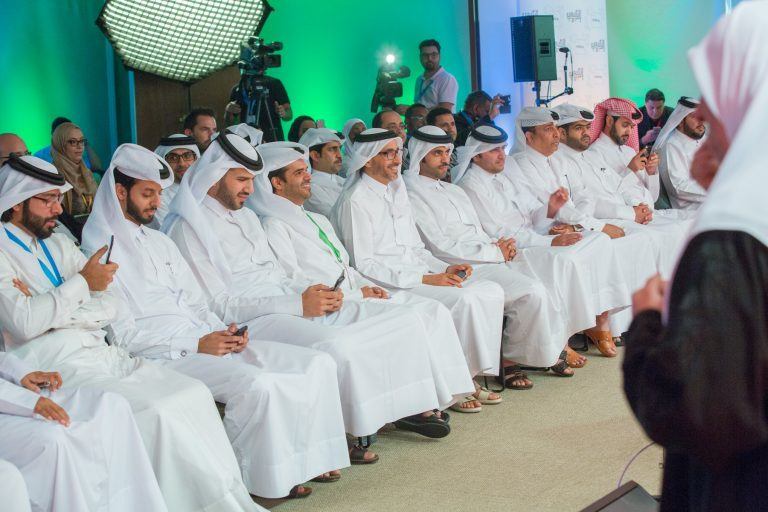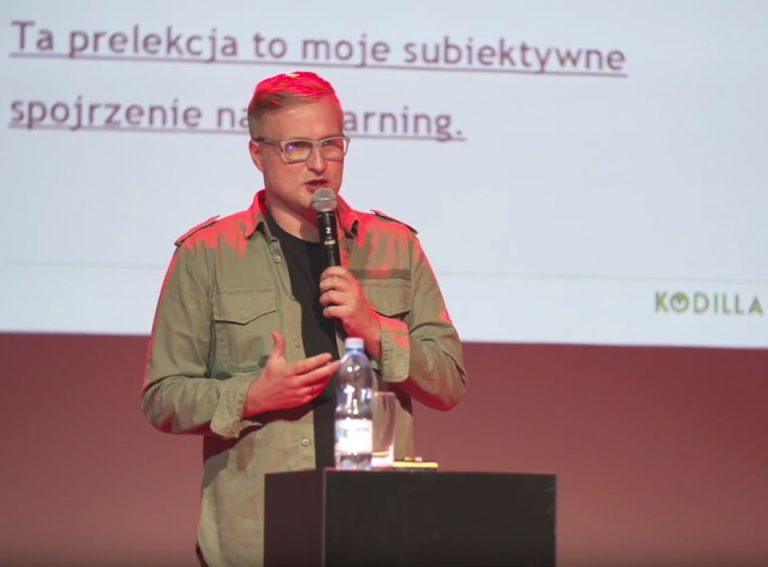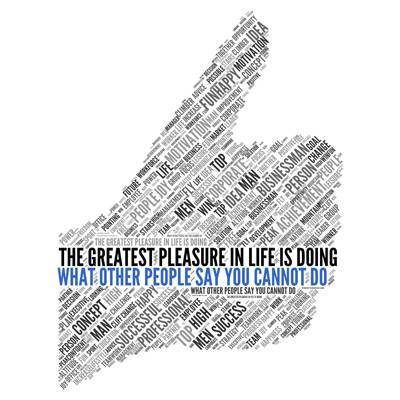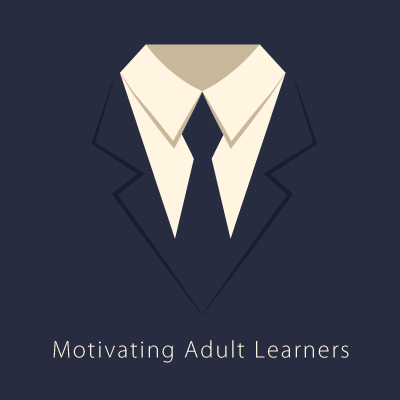Motivation In Adult Learning: How Important Is It Really?
In general, I think that a certain level of encouragement causes discouragement. Why? Well, it is caused by a set of mechanisms embedded in our psyche, that makes us think that a carrot is better than a stick, because we assume that on the other side of the process there are adults, mature people that want to learn, but don’t know how, with what, and from whom. Hence the trend of choosing an LMS, searching for overrated educational content, and looking for mentor-influencers that could be judged by the amount of their YouTube subscriptions, instead of focusing on a person and answering the question: how our knowledge and experience could solve his or her problem.
Since learning has become a marketing tool, we can’t forget about the most important thing: usefulness of the whole process of educating others. Marketing, by definition, gives (or pretends to give), and isn’t focused on teaching others, however, it is a mutual exchange of "benefits", and it couldn’t be done in any other way.
Meanwhile, the need for improvement or development is one of the biggest myths of our time. There is the same feeling that on the other side of the process there’s somebody that perfectly reads our intentions and who is only waiting for us to reach them.
"Two-day seminars are great for learning specific skills, but not for learning wide-ranging principles. You cannot learn a better philosophy in two days because the human mind is highly resilient to changing its essential patterns." - John Vespasian - On Becoming Unbreakable: How Normal People Become Extraordinarily Self-Confident
Of course, there are authors that think exactly the opposite and are trying to prove that there are no limits for those who are willing. In that case, I can't take away their right to have their own reasoning. Writing about those who are 'willing' and a lack of limits won’t multiplicate those people, because as we know, stirring a cup of tea more won’t make it any sweeter. As it turns out sweeter, it might also not work as we planned.
The Syndrome Of The Pre-War Waiter
We assume that we have to flirt with a recipient of our content and because of that, we can’t establish mature relations with them. Even increasingly better tools for processes automatization and more efficient methods of measuring effectiveness aren’t solving this problem. We’re trying even harder but that race has to end in a car crash. We’re putting ourselves in roles of perfect waiters (those you could meet in a European restaurant a hundred years ago) that are doing their job faultlessly, serving exquisite, fancy dishes to restaurants’ quests, but at the end of the day… we are still just waiters. In the world of learning, being more and more often recognized as a marketing tool, where it is crucial to establish a partnership relationship between the "master" and the "student", it’s really a tough, problematic situation. Even if we are calling our waiter by his name, we rarely become best friends with him. Especially if the "master" is often a brand, not a living person, or even an educational institution. Inherently, we trust brands much less.
I felt a very clear symptom of this while conducting an educational project in Qatar. Despite all my efforts, it was difficult for me to leave the role of a person serving local participants of workshops or trainings. Qatar is a very proud nation that is strongly convinced of its people's important role in today’s world (almost as a stereotypical client), hence it was very difficult to overcome that, and expect anything from them.
Many marketing specialists who worked on getting the project up and running focused on encouraging and adoring, instead of setting requirements and pulling out potential recipients from the apathy, and something that coaches call the 'comfort zone'. There were moments when I felt like a protagonist of a Shakespeare's play thrown into the middle of "Game of Thrones" universe. Only "men's stuff" could bring us closer together, as it turned out that we use similar equipment for filming videos, and because of that, we, finally, had something in common to talk about. In moments like that it’s terribly hard to pull out a stick, but sometimes it really is necessary.

My students in Doha
Learning At The Service Of A Stick
What’s really interesting here is that studies conducted by Washington University School of Medicine at St. Louis showed that—generally speaking—the stick is more effective than a carrot.
"Our study suggests that negative feedback may be more effective than positive feedback at modifying behaviour. Such feedback does not have to be harsh, since it appears that we tend to react in the same manner to any amount of negative feedback." - Dr Jan Kubanek, Washington University School of Medicine, St. Louis, USA
Although that conclusion might not be the most popular one today, and we could quote dozens of examples of positive motivation, which not only fulfill its role perfectly but has also become a hit on educators'-motivators’ blogs—science stands behind it. To be more precise, I mean the theory of evolution and related fields.
From the evolutionary perspective, we strive to avoid all unpleasant and dangerous situations, including punishments. Thus, prizes although attractive in presentation, have a much smaller impact on our will to survive. The psychologists who are more radical in their views are ready to state explicitly: man does not wag his finger until the pain of this finger (even a potential one) forces him to do so.
Assertive Motivation
However, there’s no need to chase mammoths with a mace just to feel it. Also, in the modern world, we can find many references to that. An interesting example is the Kodilla.com programming school. I had the opportunity to listen to what the founder—Maciej Oleksy has to say about his method.

Maciej Oleksy from Kodilla
It isn’t an easy situation because the school requires about $2500 for a 6-month remote programming course. Quite pricey for eLearning. In that position, Maciej probably should indulge and humor his clients but has a courage (based on self-developed methodology) to say from time to time: "Man, you're not paying attention, at this stage you will not be a programmer. Take your money and let’s meet again (maybe) when something changes in that regard."
Kodilla is very demanding since it offers not just a usual course, but the promise of creating a beginning programmer from everybody who finished it. That "requirement" isn’t just a suggestion "that it would be great" with one hand showing that it’s all good and the other issuing an invoice. If you won’t be able to reach the limit you will fall off the wagon. The course is taking several months to complete, and the school is taking responsibility for what happens to its students after it, including active help with finding a job in the profession.
"Generally our courses aren’t cheap… At the beginning of Kodilla, we thought that it would work a little differently. We wanted to provide courses in the freemium model, which is mostly free, and assumes that at some stage someone will pay for something… But since people were getting something for free, there was a whole postponing syndrome happening. Now, when someone is paying ten thousands zlotys for it, he or she creates such a costly contract with himself that they will actually do something or they’re fooling themselves. (…) And we are trying to be assertive in communicating that. Sometimes we bluntly say: 'Man, if you won’t commit to it, it really won't have any sense.' Sometimes we even discuss it publicly. Assertiveness is just our way to show that we care." - Maciej Oleksy, Kodilla.com – statement from Rapid E-Learning Meeting conference organized by me
10,000 Hours Of Motivation
The last part of that statement is very important to me. I don’t want to build a vision of an educator from Bismarck’s era by claiming that the stick is the best tutor and that I am winning because I care. My thinking is pretty far from that. Especially, that acting under the pressure of negative motivation, caused by a sense of threat or loss, is dangerous in the long run. Are you coming to work because you like it or because you are threatened by the possible loss of stabilization or security? You know that staying in the constant feeling of fear is not only irrational but also an easy way of burning yourself out. Already at school, you find out that success is to overcome boredom in learning. It is necessary to climb up the steps because this is what society and a programmed sense of "being fair" towards others expect from us. Maybe you started hating learning as a teenager, or maybe you have associated any kind of mental effort with a chore. But the worst part is that later in your life, you will go to work, which probably won’t be your dream job, and you won’t do anything about it, because you have learned not to notice your own demotivation anymore. You have learned not to listen to your emotions since they were irrelevant since the childhood when confronted with misunderstood rationality. When someone forces you to put rational effort ("I have to practice to learn programming languages"), which will be balanced with emotions ("as a programmer, I can earn a good money"), the stick really makes sense as a tool of motivation.
Apart from these extremes, in the current relationship of knowledge suppliers/learners, I miss basic honesty that would make it clear: acquiring new competencies, solving a problem through knowledge and experience require a lot of work, also on the recipient side. Malcolm Gladwell's thesis about the 10,000 hours of practice (learning) required to achieve mastery in any field has ceased to be enough for me. Sex Pistols conquered the world overnight and achieved a timeless success, even though their bass player, Sid Vicious, could not... play bass! Too easy? Richard Branson jumps from one industry to another and he probably did not finish the Udemy course to send a man into space. Besides, serious scientists also do not believe in easy solutions.
How can anything be required of anyone in such circumstances? If the modernity doesn’t help, what timeless authority can be a good example I could support myself with? So what that Michelangelo was a titan of work and always impressed with almost inhuman activity (using "students" to a much lesser extent), since Leonardo "hopeless sluggard" da Vinci is as famous as him. And today is all about that fame. PR and image are what really matters. Nikola Tesla became Jim Morrison of science with Thomas Edison as his biggest rival, antagonist and "thief" of patents. Hardly anyone notices that these fictionalized fragments from the biographies of both inventors are just a spatter from the hard work of each of them. It is easier to think that the genius Serb had a lot of brilliant ideas, only circumstances did not favor him. And motivation? Well, probably the motivation was there somewhere...
Only a few of us have in us this element of madness, which changes our approach to reality so much that we do not need an external motivation. We work so fast that hardly anyone can keep up with us in our lifetime, and sometimes even after our death, people wonder what it was all about. The rest procrastinate and hide in the corner wherever the employer's or client's stick can crush our bones, and after hours we are pretty happy to pretend that the carrot tastes good.








